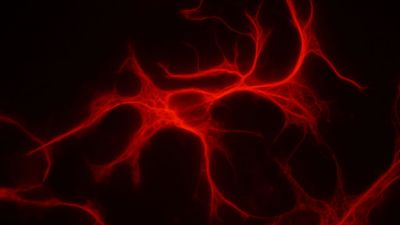The effects of ageing on brain function can seriously affect otherwise healthy individuals. The importance of astrocytes, star-shaped brain cells that not only surround neurons in place but supply them with nutrients and oxygen, has been researched, but details of how ageing can affect astrocyte energy metabolism are incomplete.
Funded by the EU, the ASTROAGE project looked at the consequences of ageing on astrocytes. The researchers compared the metabolic activity in astrocytes in the hippocampus of young mice at 4 and 22 months old. Using 13-C labelled glutamate, they focused on its metabolism as glutamate is a valuable source of energy under any low-glucose conditions.
Project results showed that the metabolic properties of the older mouse astrocytes are geared towards more efficient use of glutamate for energy production. Glycogen storage also increases in the old brain; when energy demand is high, it is used aerobically as fuel. Moreover, intermediates in the tricarboxylic acid (TCA) cycle, fumarate and citrate, are also differentially regulated in the ageing brain, which could indicate an imbalance in reaction in the cycle.
Researchers also investigated changes in levels of glutamate dehydrogenase (GDH), an enzyme that converts glutamate to alpha-ketoglutarate, an intermediate in the TCA cycle. Indeed, results showed a very high level of GDH activity and overall findings indicate a very close connection between glutamate input to the TCA cycle through GDH activity and glucose metabolism.
As any disturbance in energy production homeostasis may lead to neurodegeneration, a thorough understanding of the contribution of astrocytes to brain ageing processes is crucial to counteract cognitive decline in older people. ASTROAGE has laid a firm knowledge foundation for more in-depth studies particularly relevant in an ageing Europe.

